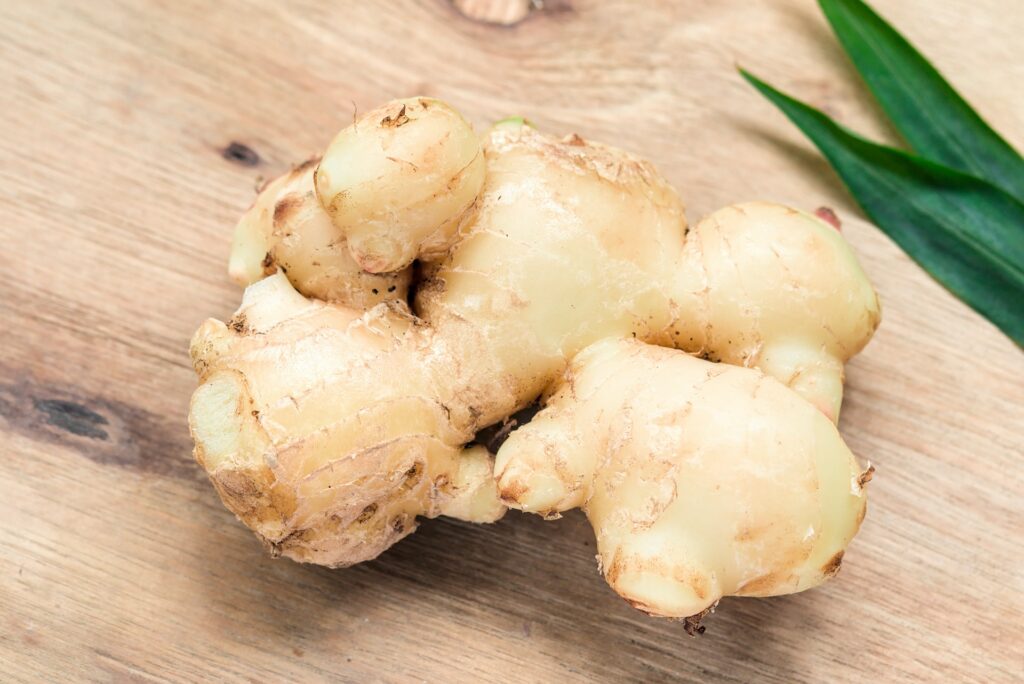4 Health Benefits of Ginger
Save a gingersnap for me
I’m going sailing out to sea
Those waves and I do not agree
I’m nauseated as can be!
Ginger for your motion sickness
Helps digest and stimulate
It’s an aid for tummy weakness
Promotes the blood to circulate
Ginger, grown on tropic soil
A rhizome root of pungent taste
Fresh or dried as tea or oil
Apply on sores, relieve your aches
When you have a bad bronchitis
Make yourself a ginger tea
Gargle with, for pharyngitis
You will sweat more easily
Yes, Zingiber, for nausea
Plan to keep it on your shelf
You can use it cooked or raw
Go ahead, improve your health
Poem by Sylvia Seroussi Chatroux, M.D.
Did You Know?
Ginger, also known as Zingiber Officinale is a root from the plant family of turmeric and cardamom that primarily grows in native India, China, and Japan. The spice we know as ginger root comes from the underground stem of the plant and its health benefits most notably alleviate nausea, indigestion, and vomiting. Continue reading to discover 4 scientifically proven health benefits of ginger

Ginger is often used in multiple forms: dried, pickled, preserved, candied, powdered, ground, or crystallized. As I mentioned, the most common benefits of ginger are known to be in the GI tract because studies have shown that its metabolites accumulate there. Let’s discuss further
4 Health Benefits of Ginger
- Treats Nausea
One of the most common and continued benefits of ginger is its ability to reduce nausea, gas, and indigestion. An article published in the Journal of Food Science and Nutrition proved the ability of ginger to lower GI pressure, flatulence, bloating, and dyspepsia by promoting gastric motility in a randomized 4-week study. Furthermore, another study in multiple populations (pregnant women, chemo patients, post-exercise, and post-surgery) demonstrated a notable decrease in symptoms as well. Some studies recommended hybrid treatment with a pharmacological drug and ginger intake, but the effectiveness of ginger was still proved.
2. Anti-Inflammatory
Ginger has high levels of antioxidant properties, exceeding that of pomegranate and other berries. These antioxidant properties are especially important because they help reduce oxidative stress, which is responsible for the free radical byproducts that lead to some chronic diseases. An article written in Urban Medicine reported that these antioxidant properties could suppress leukemia cells and other age-related oxidative stress markers.

3. Relieving Pain
Ginger’s ability to relieve pain imparts back to alleviating the inflammatory joint pain and rigidity in osteoarthritis (OA) and rheumatoid arthritis (RA). Even though studies have mixed conclusions about the definitive relationship between ginger and arthritis, one study was able to conclude the benefit of ginger for patients who had OA in the knee. This 6-week study had 261 participants with moderate to severe RA and concluded that the group receiving ginger extract had a reduction of OA symptoms which resulted in better mobility.
4. Lowering Cancer risk
The cancer prevention aspect of ginger relates to the antioxidant properties of the root that seem to influence the cancer cell cycle. The research discovered that ginger could prevent cancer growth in lymphoma, hepatoma, colorectal cancer, breast, skin, liver, and bladder cancer by decreasing the mutated cell growth and other signaling pathways in the tumor cells.
What Should You Do About It?
First, talk to your doctor. Especially if you are on medications. There are mixed reviews on whether ginger can potentiate blood thinners so just be careful and confirm with your doctor. Then, try to include ginger in your diet. This may not be so hard because many food options pair with ginger.

How To Make It SMART
SHORT- Implement ginger into your diet. You can choose to find the root at your local grocery store or just use tea bags (like me)
MEASURABLE- This might be based on whether you have “issues” like indigestion, bloating, or nausea that you are seeking a remedy for. Of course, you can still intake ginger for its antioxidant properties, but this is “measured” if you are seeking it to be a remedy
ATTAINABLE- Is this something you want to implement consistently? Is it possible to change? Some things might need professional help with a hybrid treatment of pharmaceutical drugs and an herbal remedy. It is okay to need professional help because something deeper could be going on with your body and you cannot just treat the symptoms
REASONABLE- Is it possible to implement? Can you start to include ginger? It should not be difficult because you can use tea bags. You can steep the tea and drink it in between meals
TIMELY- Commit to including ginger in and around meals for 30-60 days and assess whether it affects you positively, negatively, or not at all
Remember, choosing health is a lifelong journey and commitment, not a quick fix.
As always,
Love yourself in health, one day at a time



